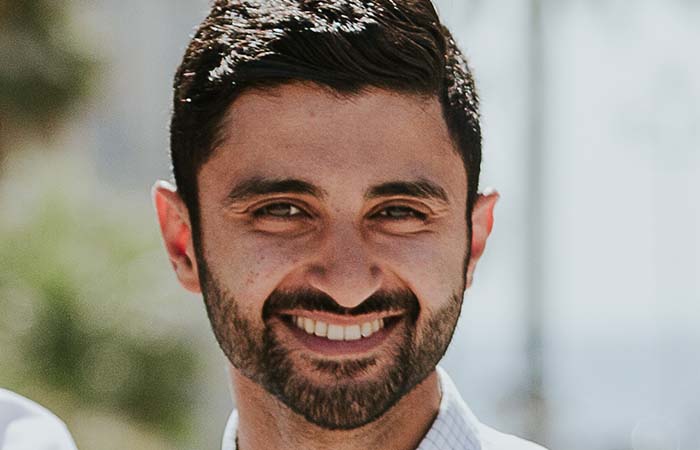How stopping free services turned my business around
In News
Follow this topic
Bookmark
Record learning outcomes
Pharmacist Ali Hashemian tells P3pharmacy how he has managed to turn around two struggling pharmacies in Avon
I bought Bathampton Pharmacy and Pulteney Pharmacy in 2020 after working with Day Lewis for many years. It was a time of much uncertainty, and the sellers were very worried the sale of the business – Bath and District Pharmacy Ltd – wouldn’t go through.
At the time, the business wasn’t really making any money, so it was a struggle for me to get a loan. I was refused by numerous high street banks before a less well-known bank agreed a loan with quite high interest. I had a lot of interviews with them to justify how I planned to turn the pharmacies around.
First steps
The first thing I did was change all the computers and make the software a lot more efficient. Adding more computers meant people weren’t waiting for one to be free to do their task, which was one of the most important things. It freed up staff time to allow them to do other things; all my staff are trained to do services like flu vaccinations.
I’m very lucky to have a great team. I made sure to keep on all the old staff and have recruited more, growing the team from eight to 15.
The apprenticeship scheme was very helpful. If anyone out there is looking for reliable staff who they can shape to help run the pharmacy, the scheme is one of the best ways of recruiting. One of my dispensers is a Harvard PhD, and she says this is her dream job.
In addition to offering flexible working, the key thing with staff is that they must know that you have their back. I’ve heard from others who have worked at some multiples that if a patient is angry, the company always blames the staff member.
We’ve got a completely different way of doing things, as I know that nine times out of 10 they won’t have done anything wrong.
I’m looking to buy more pharmacies when the right one comes along – but unlike before, I know I won’t look for high item stores. We do around 12,000 per month between the two pharmacies.
High numbers like 15-20,000 per month are very difficult to manage, and businesses that had a great income five years ago are now struggling. Some local high-item pharmacies have had to put a bouncer on the door to cope with abusive patients.
Stopping free services is the change I made that has had the highest impact. The pharmacy was doing dosette boxes for around 130 patients, but after talking to the LPC and using ICB materials we assessed that only 10 were eligible.
We kept on those 10 and gave everyone else the option of paying £240 a year to carry on having them. Thirty decided to pay and the rest were happy to go to original packaging. We lost zero patients as a result.
What we’ve seen from stopping the boxes is that mistakes have gone down and the checking time is saved – it takes around 30 times longer to check a dosette box than the equivalent number of individual items.
We made the change in one month, and the impact was so significant because it freed up one full-time dispenser.
I used to have to stay after work to check the boxes, because it needs a lot of concentration, and that has completely stopped.
Right now we plan to cut down on free deliveries, using the same approach of speaking with patients and surgery staff.
We’ll still offer deliveries to some patients in a certain radius and charge others. We’re not charging the full cost; I would be happy to cover 50 per cent of the cost for now, because we are trying to provide a service. But if we don’t make these changes, it will force the pharmacies to close.
Focus on the easy wins
Pharmacies should focus on the services that are easiest to implement, which for us are NHS-funded ones like blood pressure and contraception. You’re not spending any money on vaccines and there’s no PGD involved, so it’s just 100 per cent earning.
I recommend building services gradually rather than trying to do everything at the same time, because one of the most important things is the continuity of providing a great service. There are so many services that can be done in a pharmacy, from hormone replacement therapy to earwax suction and even Botox. My next project will be thinking about aesthetics.
Another very important thing I did was to meet with all the other local pharmacies in my first month. Now we have regular meetings. We don’t have a huge retail space, so we send some patients to another pharmacy and they send their travel patients to us. There’s still some healthy competition, but we’re not competing ourselves into the ground like before.
You also need to get to know the local surgery. I’m talking about the receptionist, the manager, the doctors and the nurses. We have monthly ‘Pizza Friday’ networking events with our staff and the local practice.
Pharmacy First has been fantastic – we do about 80 to 100 consultations a month. In terms of the clinical pathways, so far we have hit all the monthly targets but September might be a bit of a struggle.
As told to Arthur Walsh. If you'd like to share how you are driving your business forward, please get in touch at arthur.walsh@1530.com

